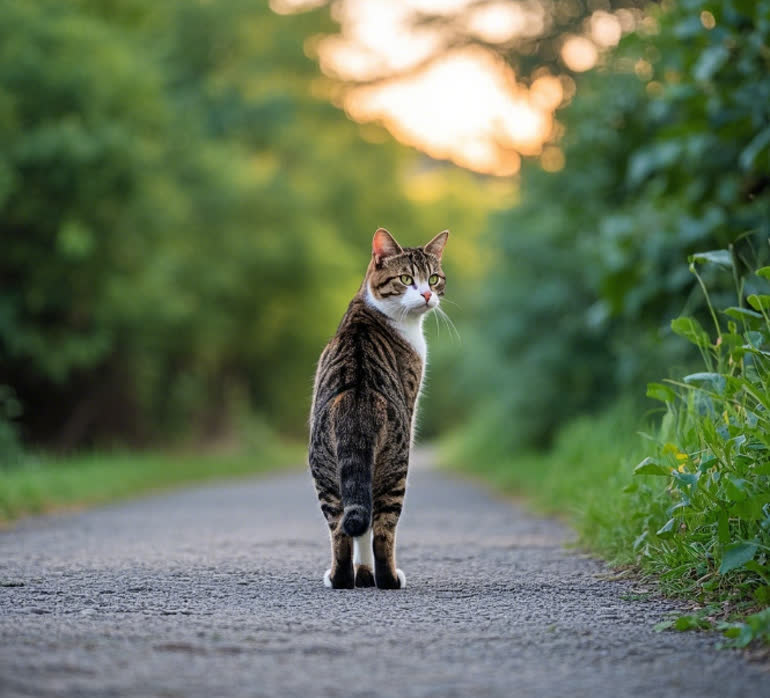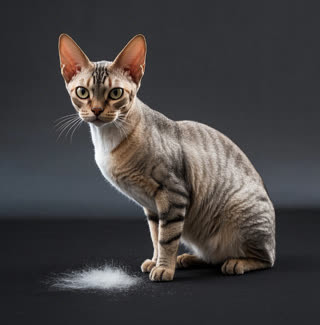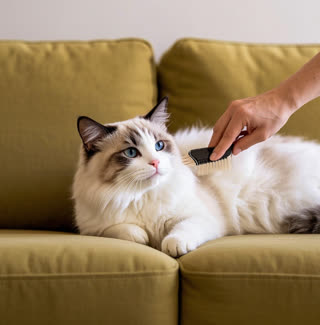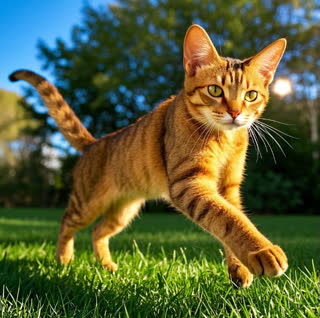Have you ever called your cat’s name, only to be met with a 高冷 stare or a flick of the tail? While cats are often celebrated for their independence, recent research shows they can recognize their names—even if they choose to ignore you. In this article, we’ll explore the science behind feline behavior, how cats learn their names, and why they sometimes pretend not to hear you.
The Science of Feline Cognition
Cats may not have the same cognitive abilities as humans, but their brains are wired for survival and adaptation. Studies suggest they possess long-term memory and can learn through classical and operant conditioning. For example, they associate the sound of a can opener with food or a shaking treat bag with a reward. This ability to form connections between stimuli and outcomes is key to how they recognize their names.
Unlike dogs, which evolved as pack animals, cats are solitary hunters by nature. Their domestication began over 10,000 years ago, when they self-domesticated by controlling pests around human settlements. This history explains their independent streak: they don’t rely on humans for survival, so their motivation to respond to commands (like a name) depends on whether it aligns with their interests.
How Cats Learn Their Names
Cats recognize their names through repetition and positive reinforcement. When you consistently use their name during interactions—such as feeding, playtime, or cuddling—they start associating the sound with positive experiences. Over time, this creates a neural pathway in their brains that links the name to attention or rewards.
A 2019 study published in Scientific Reports found that cats can distinguish their names from similar-sounding words, even when spoken by strangers. The researchers observed subtle responses like ear twitches or head turns, indicating recognition—even if the cat didn’t physically approach. However, they were more likely to react when the name came from their owner, highlighting the role of voice familiarity in their behavior.
Why Cats Ignore You (Even When They Know Their Name)
Cats are masters of selective hearing. While they may recognize their name, they often decide whether to respond based on their current priorities. Here’s why:
Independence: Cats value autonomy and may prioritize napping or exploring over obeying commands.
Stimulus Competition: If they’re distracted by a bird outside or a toy, your voice might not register as urgent.
Negative Associations: If your cat has experienced punishment (like scolding) after hearing their name, they may avoid responding to avoid conflict.
Tips to Strengthen Name Recognition
If your cat seems indifferent to their name, patience and consistency are key. Try these strategies:
Pair the Name with Rewards: Use treats, toys, or praise every time you say their name.
Use a Soothing Tone: Harsh voices can create anxiety. Keep interactions positive.
Avoid Confusion: Ensure their name doesn’t rhyme with common words (e.g., “Kitty” vs. “City”).
Observe Body Language: A flicking tail or ear twitch might mean they heard you, even if they don’t come over.
Feline Behavior: Beyond Name Recognition
Understanding how cats recognize their names offers insight into their broader behavior. Cats communicate primarily through body language, scent marking, and vocalizations. For example, a slow blink signals trust, while a puffed tail indicates fear. By learning these cues, you can strengthen your bond and improve communication.
Additionally, cats thrive on routine. Consistently using their name during mealtimes or play sessions reinforces positive associations and makes them more likely to respond.
Conclusion
Cats recognize their names through a combination of conditioning, memory, and social interaction. While they may never fetch like a dog, their ability to learn and adapt is a testament to their intelligence. So the next time your cat ignores you, remember: they probably heard you loud and clear—they’re just exercising their feline right to decide.
By leveraging these insights into feline behavior, you can create a happier, more responsive relationship with your furry friend. After all, even aloof cats appreciate a little positive reinforcement. 🐾










